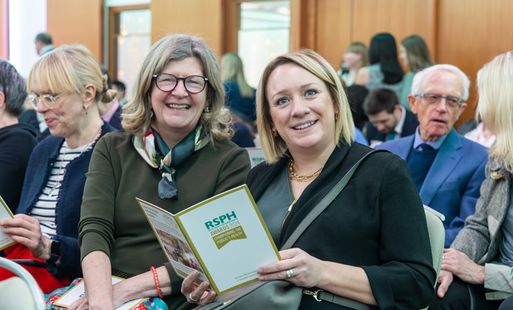#StatusofMind: The effects of Social Media on Mental Health
In 2017, RSPH published a groundbreaking report on the effects of social media on the mental health of young people.

Social media has revolutionised communications
This happened as soon as it was popularised in the mid-2000s, linking the online and offline worlds in a way never seen before. Social media became a space in which we form and build relationships, shape self-identity, express ourselves, and learn about the world around us.
This led RSPH in 2017 to investigate the effects of social media on the mental health of its young people. The resulting report, #StatusOfMind, shed light on the risks as well as the benefits of social media usage on the lives of its primary users, and made evidenced calls about how we can safely navigate digital innovation.
#Statusofmind: at a glance
Key findings
- 91% of 16-24 year olds used the internet for social networking
- Social media use is linked with increased rates of anxiety, depression and poor sleep
- 7 in 10 said they had experienced cyberbullying
- Social media can improve young people’s access to other people’s experiences of health and expert health information
Recommendations
- Introduction of a pop-up heavy usage warning on social media
- Social media platforms to highlight when photos of people have been digitally manipulated
- Safe social media use to be taught during PSHE education in schools
- Social media platforms to identify signs of mental health problems via posts, and discreetly signpost to support
- Professionals who engage with young people to receive social media training
Key statistics
of 16-24 year olds use the internet for social networking
said they had experienced cyberbullying
increase in reported anxiety over 25 years
What are the negative effects of social media on mental health?
Anxiety and depression
Young people who are heavy users of social media are more likely to report poor mental health, including psychological distress (symptoms of anxiety and depression).
Poor sleep
Numerous studies have shown that increased social media use has a significant association with poor sleep quality in young people, which can have a damaging effect on mental health and vice versa.
Body image issues
Recent decades have seen increased awareness of the impact of images in traditional media on women and girls, but very little research and focus has been directed towards the impact social media is having on our young people as regards body image. Given the extent of social media use, it is important that further research is carried out into the consequences on body image.
Cyberbullying
Online interaction presents opportunities for bullies to continue their abuse even when not physically near an individual. The rise in popularity of instant messaging apps such as Snapchat and WhatsApp can also act as rapid vehicles for circulating bullying messages and spreading images.
Fear of Missing Out
Young people are experiencing a practically endless stream of others’ experiences that can potentially fuel feelings that they are missing out on life – whilst others enjoy theirs, and are increasingly reporting that FOMO is causing them distress in the form of anxiety and feelings of inadequacy.
What are the positive effects of social media on mental health?
Access to other people’s health experience and expert health information
Social networking offers young people who may be suffering from mental health issues an opportunity to read, watch or listen to, and understand, the health experiences of others – relating them back to their own reality.
Emotional support and community building
Conversations on social media can emerge and provide young people with essential interaction to overcome difficult health issues, particularly when they may not have access to that support face-to-face.
Self-expression and self-identity
Social media can act as an effective platform for accurate and positive self-expression, letting young people put forward their best self. They are able to personalise their profiles and feeds with images, videos and words that express who they are and how they identify with the world around them.






